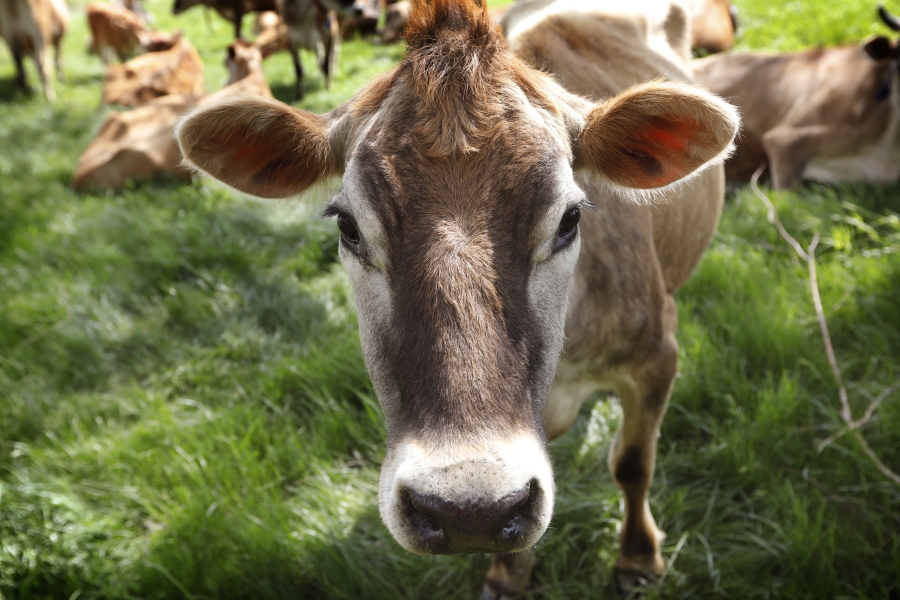FAIRFIELD, Iowa — Small family-operated dairy farms with cows freely grazing on verdant pastures are going out of business as large confined animal operations with thousands of animals lined up in assembly-line fashion are expanding into the organic market.
Many traditional small-scale organic farmers are determined to fight back against the industry transformation by appealing to consumers to look closely at the organic milk they buy to make sure it comes from a farm that meets the idyllic expectations portrayed on the cartons.
While the large operations say they’re meeting U.S. Department of Agriculture standards for organic milk, the smaller farms say federal regulators under Republican and Democratic administrations have relaxed enforcement of strict organic standards for dairy farms, allowing confinement dairies to grow and put intense competition on small family-operated dairies.
“There’s a higher authority than the USDA. There’s a higher authority than the federal courts where we’ve litigated some of these issues. And that’s the consumer. Their dollar has power,” said Mark Kastel at the Wisconsin-based Cornucopia Institute, a nonprofit public interest group focused on farm policy.
The dairy industry, like much of U.S. farming, has trended toward fewer but larger farms since the 1980s, when organic milk was available only at farmers markets or specialty grocers and the milk came from small-scale dairy farms selling to a local cooperative.
Now organic dairy products are widely distributed by mainstream grocers and mass retailers including Costco, Target and Walmart. But much of those companies’ store-brand milk comes from dairies with thousands of cows maintained in immense confinement operations.
Kastel says that style of farming is contrary to what the founders of the organic movement envisioned and what consumers believe they’re buying. His group on Thursday is releasing an updated Organic Dairy Scorecard, which will rank 160 brands evaluated for their organic practices including quality of pasture, how frequently cows graze and how often they’re milked.
A spokeswoman for Aurora Organic Dairy, the industry’s largest supplier to grocery chains such as Costco, Safeway and Walmart, said activists who believe organic food should come from only small producers are the primary critics inaccurately portraying large-scale organic production.
Sonja Tuitele said the company’s farms have more than 10,000 acres of organic pasture for grazing and the farms exceed minimum requirements for grazing days and percent of diet from grazing.
The company has nine barns in Colorado and Texas with about 26,000 cows. The largest has 4,400 cows and the smallest, 900 cows. Aurora CEO Scott McGinty said in a statement released in April that the company maintains two USDA accredited certifiers for each farm.
“A second organic certification is a voluntary quality assurance step to ensure our farms receive more frequent inspections and measurement of compliance,” he said.
Competition from large operations combined with plummeting dairy prices in the past four years have left organic dairy farmers either barely squeezing out a profit or in most cases losing money. It has accelerated the loss of smaller farms.
The U.S. Department of Agriculture reported in February that the number of U.S. dairy farms, including organic and conventional fell nearly 4 percent last year from the previous year to 40,219. The number of dairy farms declined 32 percent in the last decade.




